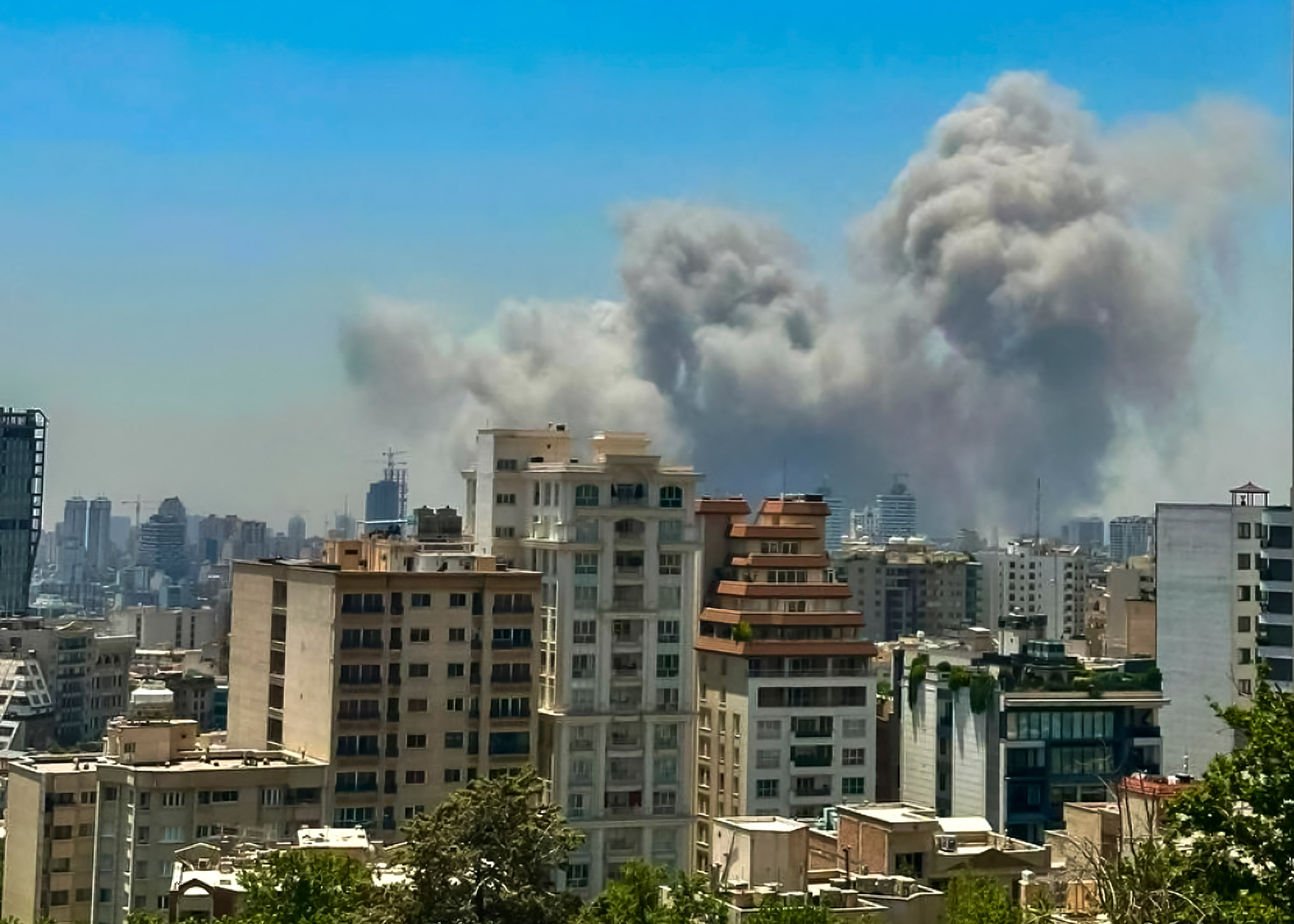When I saw the images of Evin Prison’s front gate torn to shreds by an Israeli airstrike, my eyes filled with tears. I spent eight years behind that gate as a hostage of the Islamic Republic—held in a place where brutality is policy and hope is contraband.
But my tears were not tears of joy. I wasn’t reveling in the thought that some of those responsible for tossing me—and later my ailing father—into solitary confinement were finally getting what they deserved. My heart was too tormented by imagining the horror that so many innocent prisoners—some of whom I spent years locked up with—and their families must be experiencing now.
[time-brightcove not-tgx=”true”]
This was not just a strike on a symbol of repression. Israel didn’t merely blow open a prison gate. Its bombs—dropped in the middle of working hours—severely damaged the adjoining Shahid Moghaddas judicial complex, where prisoners are dragged before malevolent magistrates and fed into the machinery of the Revolutionary Court. I’ve been in those rooms—shackled, humiliated—facing men who called themselves judges but acted like junior members of the intelligence services, signing whatever orders they were handed. One I called “Jenayatkar” behind his back—a play on his name that means “criminal” in Farsi. The nickname stuck. I remember him sneering at me once while I was being held incommunicado, saying, “Your mom is downstairs in the waiting room. She comes every single day, pleading for a visit,” with a grin I wished I could smack off his face.
Read More: Why Iranians Beaten and Imprisoned by the Regime Condemn Foreign Interference
But that center of injustice wasn’t filled only with villains. The bombs did not distinguish between evil magistrates and political prisoners, or the 18- to 20-year-old conscripts tasked with escorting them. Were human rights lawyers, who braved those halls to defend the defenseless, among the casualties? How many janitors and clerks—who commute for hours from Tehran’s poorest suburbs—are now dead or injured? And what of the families gathered in the waiting area, as my own mother once did, pleading for visits, for medicine deliveries, or simply for confirmation that their loved ones were even being held inside Evin at all?
Israel’s bombs also hit the infirmary, where I and countless others once lined up to see the doctor. I remember the desperation there—but also the acts of quiet courage. What has become of the young female physician I used to address as “Superhero,” who once stormed into the women’s ward during the pandemic and forced a reluctant warden to send a political prisoner with acute COVID-19 to a hospital? She saved that woman’s life. I recall many other stories of the infirmary staff helping prisoners in ways I cannot divulge. Their quiet, thankless compassion helped us endure and survive. Now that infirmary lies in ruins.
Ward 4, where many political prisoners and foreign or dual-national hostages are held, was also damaged—including the library, our main refuge, where I spent most of my days. So was the women’s ward. Immediately after the strike, political prisoners—men and women—were suddenly rounded up, placed on buses, and transported to an undisclosed location without any of their belongings. Terrified families are now frantically calling one another, desperately seeking news and praying their loved ones are alive—and that the regime won’t take out its fury on them.
The Evin Prison complex houses multiple detention centers. The most harrowing—controlled by the Ministry of Intelligence and the Islamic Revolutionary Guard Corps—were reportedly damaged as well. I spent over two years in one of them. We don’t know if any of the interrogators who beat me were harmed—just as we don’t know whether any political prisoners were buried beneath the rubble of their solitary cells or the torture chambers where they were blindfolded and brutalized.
Read More: Meet the Jailed Husband of Iran’s Most Prominent Women’s Right Defender
And what about the visitation center, also damaged in the bombing? How many prisoners, families, and lawyers were harmed there? What became of the kind monitor who used to let my mom stay as long as she liked—quietly ignoring the 20-minute limit and saying this small gesture was all he could offer a family that had been through so much injustice?
This was no surgical strike on senior regime officials or military commanders in their ill-gotten penthouses. Those bombs certainly don’t inspire the Iranian people to rise up and topple the Islamic Republic. Quite the opposite. A former political prisoner reports that families of prisoners, guards, and administrators have all gathered outside the prison—helplessly seeking news of their loved ones and shedding tears together.
Israel’s bombing of Evin lays bare what happens when two reprehensible systems collide: one that cages the innocent, and another that claims to liberate them with bombs. We can only hope the recent fragile ceasefire between Iran, Israel, and the United States holds—and that this madness finally ends.
But even if it does, we all know what will follow. The Ayatollahs, having failed to stop the bombs from Israel or the U.S., will turn their vengeance inward. They will try to reassert control in the only way they know how: through brute force. Thousands will be rounded up, tortured, and executed as the regime spreads fear to survive. Already-persecuted communities—like the Baha’is—will likely be among the first to suffer.
As always, the most innocent will pay the highest price.

